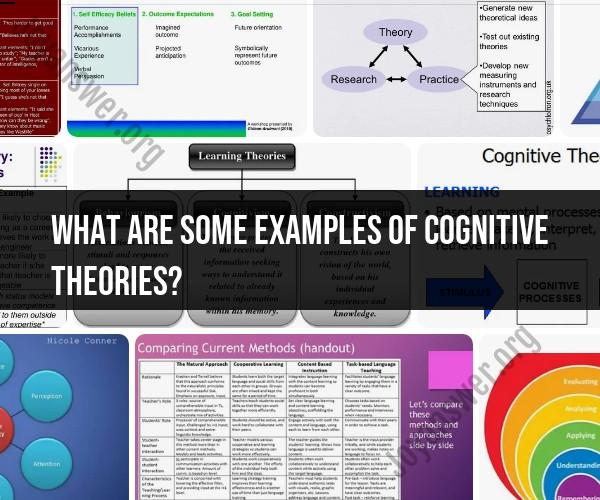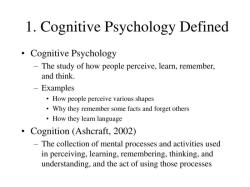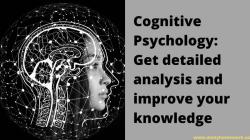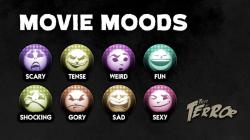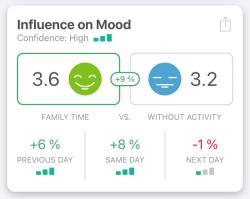What are some examples of cognitive theories?
Cognitive theories are psychological theories that focus on understanding and explaining various aspects of cognitive processes, including perception, memory, learning, problem-solving, and decision-making. Here are some examples of well-known cognitive theories:
Cognitive Behavioral Theory (CBT): CBT is a widely used cognitive theory that explores the relationship between thoughts, feelings, and behaviors. It suggests that individuals' thoughts and beliefs influence their emotions and actions. CBT is often employed in psychotherapy to help individuals identify and modify negative thought patterns and behaviors.
Information Processing Theory: This theory views the mind as an information-processing system, similar to a computer. It examines how individuals acquire, store, and retrieve information. The Atkinson-Shiffrin model, which includes sensory memory, short-term memory, and long-term memory, is a classic example of an information processing theory.
Schema Theory: Schema theory posits that individuals have cognitive structures called schemas that help them organize and make sense of information. Schemas guide how people perceive, interpret, and remember new information. For example, a person's schema for a "restaurant" may include expectations about the atmosphere, menu, and service.
Social Cognitive Theory: This theory, developed by Albert Bandura, focuses on the influence of observational learning and modeling. It emphasizes how individuals learn and develop behaviors through observing others. It's particularly relevant in the study of behaviors and attitudes.
Gestalt Psychology: Gestalt psychology explores how people perceive and interpret the world as a whole rather than as individual parts. It suggests that individuals tend to organize sensory information into meaningful patterns and structures. Gestalt principles, such as closure and similarity, are examples of this theory.
Cognitive Developmental Theory (Piaget): Jean Piaget's theory of cognitive development outlines the stages through which children acquire cognitive abilities and understanding of the world. It includes stages like sensorimotor, preoperational, concrete operational, and formal operational, each marked by distinct cognitive achievements.
Problem-Solving Theory: This theory explores how individuals approach and solve problems. It considers strategies, decision-making processes, and cognitive skills involved in finding solutions. Researchers study problem-solving in various domains, from mathematics to psychology.
Cognitive Load Theory: This theory examines how the cognitive load or mental effort required for a particular task affects learning and performance. It suggests that individuals have limited cognitive resources and that instructional design should optimize the allocation of cognitive load to enhance learning.
Connectionism: Connectionism, often associated with neural network models, focuses on how information is processed and stored in the brain. It involves the concept of distributed representations and connections between nodes, simulating how cognitive processes might work.
Theory of Mind: Theory of mind theory explores individuals' ability to understand and attribute mental states (such as beliefs and intentions) to themselves and others. It's crucial for understanding social interactions and empathy.
These cognitive theories provide frameworks for understanding and studying various aspects of human cognition, behavior, and mental processes. Researchers and psychologists often draw from these theories to inform their work, whether it's in the fields of education, clinical psychology, cognitive science, or human-computer interaction.
Examples of Cognitive Theories in Psychology
Here are some examples of cognitive theories in psychology:
- Cognitive theory of learning: This theory posits that people learn by actively processing information and constructing their own knowledge.
- Cognitive theory of memory: This theory explains how people encode, store, and retrieve information.
- Cognitive theory of personality: This theory views personality as a system of cognitive structures, such as schemas and scripts, that organize our thoughts, feelings, and behaviors.
- Cognitive theory of development: This theory explains how children's cognitive abilities develop over time.
Cognitive Theories of Learning and Memory
Cognitive theories of learning and memory emphasize the importance of active processing in learning. For example, the elaboration theory of learning states that people learn best when they make connections between new information and what they already know. The dual coding theory of memory states that people remember information better when it is encoded in both verbal and visual forms.
Cognitive Theories of Personality and Development
Cognitive theories of personality and development view personality as a system of cognitive structures, such as schemas and scripts, that organize our thoughts, feelings, and behaviors. For example, the schema theory of personality states that people organize their knowledge into schemas, which are mental frameworks that we use to interpret and understand the world around us. The script theory of personality states that people use scripts, which are mental representations of sequences of events, to guide their behavior in social situations.
Cognitive theories of development explain how children's cognitive abilities develop over time. For example, the Piagetian theory of development states that children go through four stages of cognitive development, each of which is characterized by different ways of thinking about the world.
Practical Applications of Cognitive Theories
Cognitive theories have been applied to a wide range of practical problems, including:
- Education: Cognitive theories have been used to develop effective teaching methods and to help students learn more effectively.
- Therapy: Cognitive-behavioral therapy (CBT), which is based on cognitive theories, is one of the most effective treatments for a variety of mental disorders, such as anxiety and depression.
- Workplace: Cognitive theories have been used to develop training programs to improve employee productivity and safety.
Influential Figures in the Development of Cognitive Theories
Some of the most influential figures in the development of cognitive theories include:
- Jean Piaget: Piaget was a Swiss psychologist who developed the Piaget theory of development, which is one of the most influential theories of cognitive development.
- Albert Bandura: Bandura is a Canadian-American psychologist who is best known for his work on social learning theory and the Bobo doll experiment.
- David Ausubel: Ausubel was an American educational psychologist who is best known for his work on meaningful learning and the Ausubel theory of learning.
- Ulric Neisser: Neisser was a German-American cognitive psychologist who is considered to be one of the founders of cognitive psychology. He is best known for his work on memory and cognitive development.
- Aaron Beck: Beck is an American psychiatrist who is considered to be the father of cognitive therapy. He is best known for his work on cognitive distortions and negative thinking patterns.
Cognitive theories have had a major impact on our understanding of how the mind works and how to improve cognitive function. They have been applied to a wide range of practical problems, including education, therapy, and the workplace. Cognitive theories continue to be developed and refined today.
